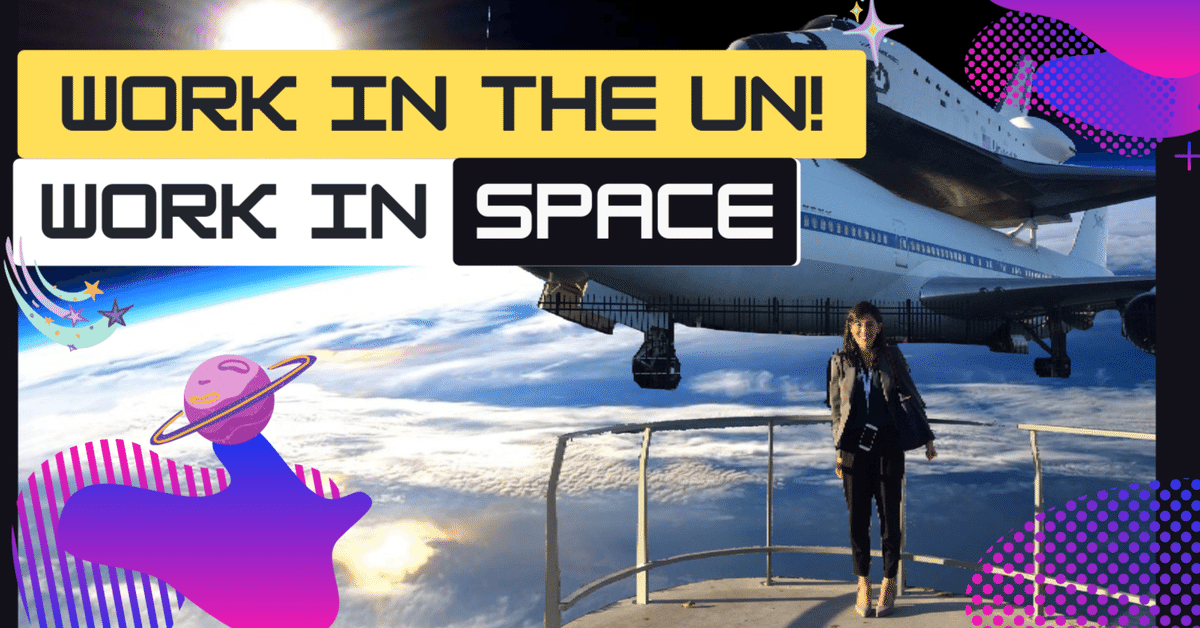
Working in the United Nations, for Outer Space! Interviewing Ms Hazuki Mori!
This article is fully open to the public. (Interview: May 2022)
Who's interested in working internationally and working in the space sector?
Space isn't just about the engineers or the astronauts, Ms. Hazuki Mori works in the United Nations Office of Outer Space Affairs (UNOOSA)!
Credits to Ms. Mori
About Ms. Hazuki Mori
Ms. Mori is currently the Programme Officer on secondment from JAXA to UNOOSA, an Expert in the Space Applications Section of UNOOSA.
She obtained her degree in International Trade Law from Waseda University.
She has worked in JAXA since 2014. Furthermore, she is an alumnus of the Space Studies Program at ISU (International Space University) in 2018.
In 2020, she moved to Vienna, Austria to work at the UNOOSA headquarters. She is currently pursuing a Master’s degree in sustainability from the University of Sussex.
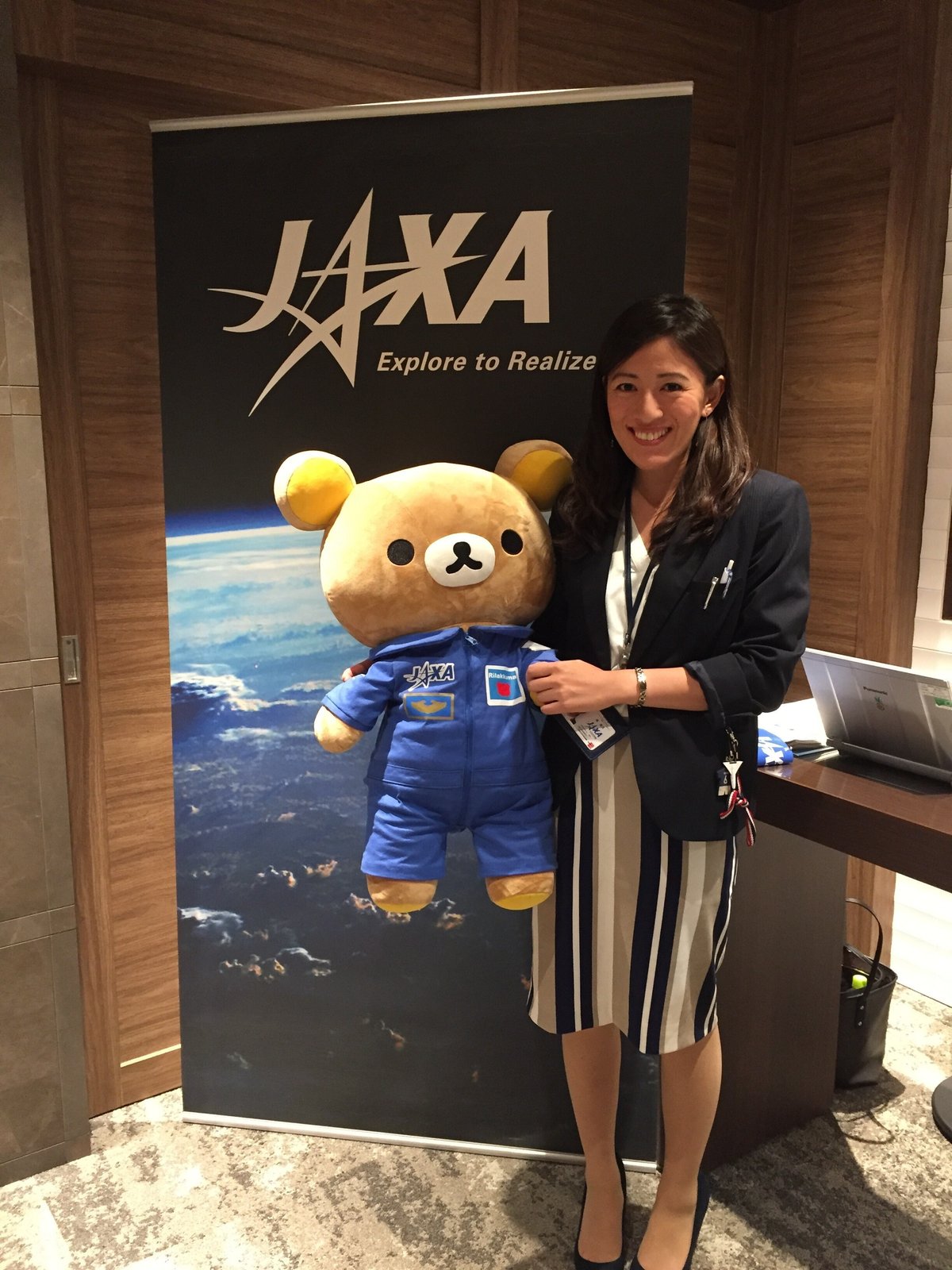
"I was always interested in the starry night and space had always inspired me ever since I went to the Kennedy Space Center in the US."
About UNOOSA
The United Nations Office for Outer Space Affairs is the sole UN office dedicated to space affairs.
The 3 Roles of UNOOSA
Capacity Builder: provide access to space technology/data and capacity to apply tech/data to accelerate sustainable development.
Convener: facilitating discussions for international cooperation amongst the UN Member States to develop new space policies.
Gateway: coordinate activities using space-related technology and knowledge to promote sustainable development.
About Ms. Mori's Job
Her work is to coordinate communications between many partners involved in the capacity-building projects promoted by the UNOOSA. She works as someone who bridges many people and also manages the programs.
She mainly works with the awardees of UNOOSA's Access to Space for All initiative programs.
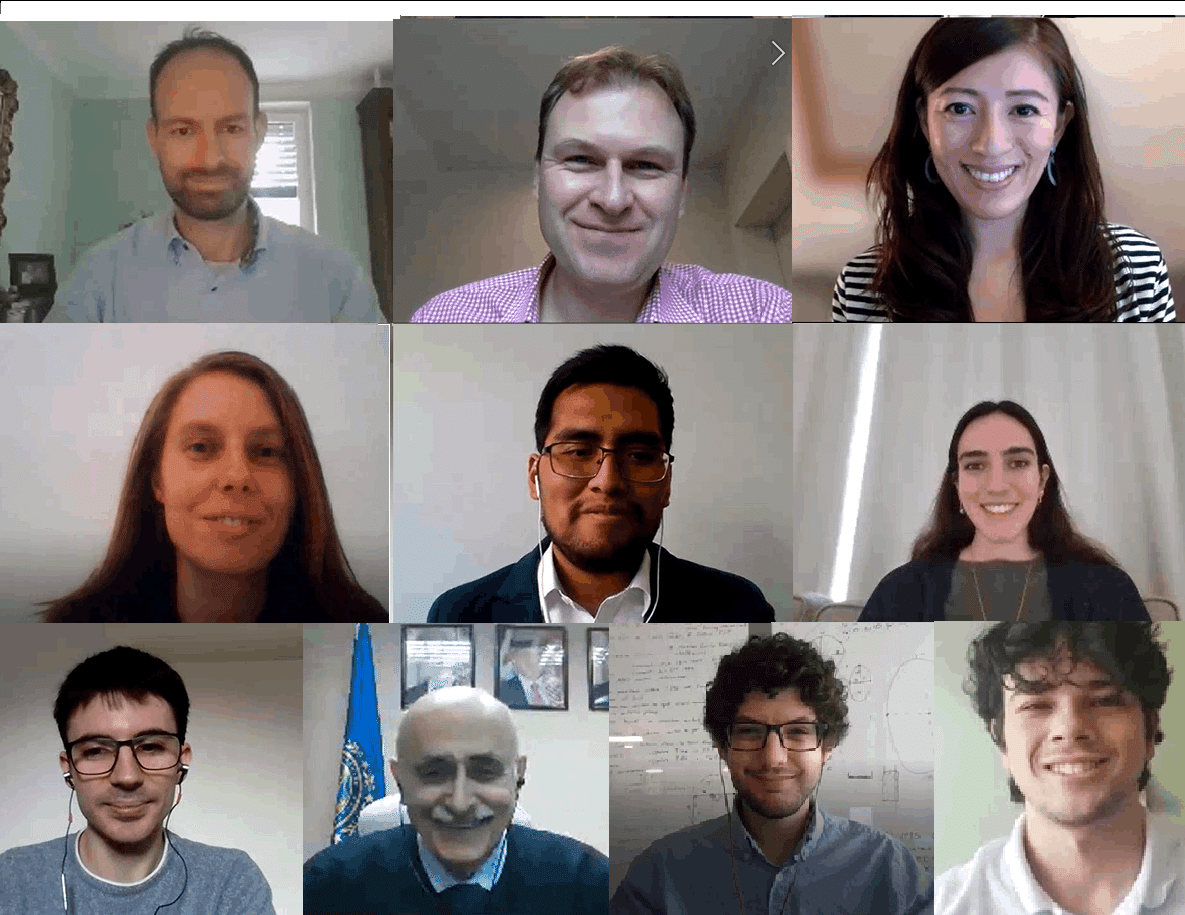
: How does your University degree relate to your current occupation?
"My current work is mostly about management and coordination. My degree in international trade law does work as a basis when talking to new partners about starting a project etc.
Although it doesn't relate directly to my current job, it was very useful during my time in JAXA when I was involved in legal affairs and procurement."
: What does a day in Ms. Mori's life look like?
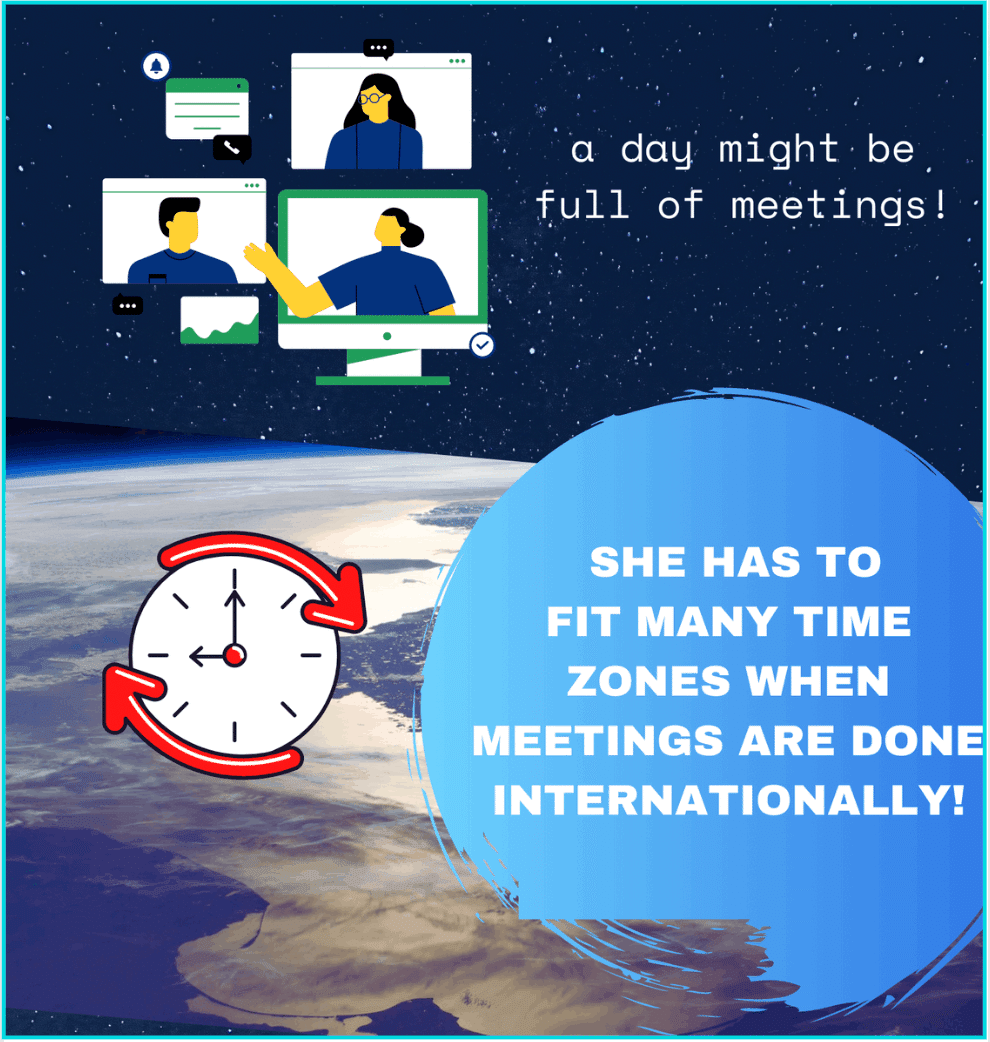
A quick tip: The UN officially has 6 languages (English, Chinese, French, Arabic, Russian, and Spanish), and many colleagues, especially those from Europe, can speak various similar languages. Mostly English is used.
German is spoken in Vienna, but it's not part of the UN's official languages…
: What's the best thing about being in Vienna?
"Vienna is a very international city, you can meet so many people and make friends from various countries, not just from the UN. It's a historic and beautiful city, and also quite safe compared to other cities."
About Ms. Mori's past
: When did you become interested in space?
"When I was little, I used to live in the US. I was blown away when I encountered space for the first time at the Kennedy Space Center in Florida. I also had an admiration for the starry night and the Star Wars saga, which all contributed to my admiration for space."
: Why did you decide to study International Trade Law at university?
"I went to high school in Japan. There, I realized I wasn't a mathematics/science person, so I decided to look for other things.
Since International Law works as a basis for all industries, I decided to study it as it would keep my options open."
: When was the most difficult time for you, and how did you overcome it?
"It was the 3rd grade of university when everyone in our year had to find work after graduation(shukatsu). I had no idea what I wanted to do for work and was very lost.
I had 2 pillars in mind: First, it had to be an international work where my English skills and childhood experience would be my advantage. Also, I wanted to raise the presence of Japan on the international stage and I wanted to work at an organization that had the technology to represent the country. Secondly, I wanted to do something that would help people's lives across the world, something impactful.
Later I realized that the space sector was a great match because…
Japan had many good technologically skilled stakeholders to promote its presence.
There was so much potential in space and its technology (e.g., using satellites: connectivity/agriculture/disaster management)
I can Link SDGs and space tech. Things simple as GPS and phone calls won't work without satellites. Space tech is taken for granted, so we need to make sure people realize how important it is and ensure the sustainable development of space."
: What do you rely on when making important decisions?
"When making important decisions, I always choose something that has broad opportunities, enough to bring a lot of choices for the future, but not too broad that it means nothing. It becomes harder to switch between jobs when your studies are too specific. I decided to pursue law and space for a large amount of wiggling space. Though, I suggest science-oriented people specialize when looking to become an engineer, etc. "
What Ms. Mori taught me about important things in the space sector
Know about the industry
"Who has the political power? Who has the most funding? Who has cutting-edge technology? Which companies are rising, which are falling out? Ask yourself these questions, and understand the industry. Reading articles from the industry's newspapers, looking at social media of different companies, and joining webinars to make connections with seniors in the sector will all help."
Understand that there are many cultures and different ways of communication
"While working internationally, cultural and historical differences make a lot of difference, even if everyone is speaking English together.
For example, the way that an American person and a Japanese person communicates their idea would be different even if they both use English.
In addition, it is important to be aware of world history.
I am glad to have studied it in high school; every culture has its own unique history, but it cannot be emphasized how critical it is to understand history in order to understand the culture in the country. Finally, there are long-standing conflicts across the world. Some teenagers now have experienced or are experiencing war. It is important to be mindful of these things when working in an international setting."
Understand the politics
"Working in a well-known organization like the United Nations or JAXA seems very shiny and cool. But you do need to be aware that they are connected to the governments of many countries. Both the UN and JAXA are influenced very much by the politics and the bureaucracy of the international stage and the Japanese government.
For example, countries (i.e., member states) have a lot of power in the UN and the countries fund the projects going on in the UN. The secretariat makes suggestions to member states, but they have the final say in which project to fund and which not to. There is always a need to show that your project/initiative is valuable.
Similarly, in JAXA the projects are funded by the country, so the project must be presented to the politicians in a way that they would see the value in it.
It is still a good experience to be exposed to how the world works at national and international levels."
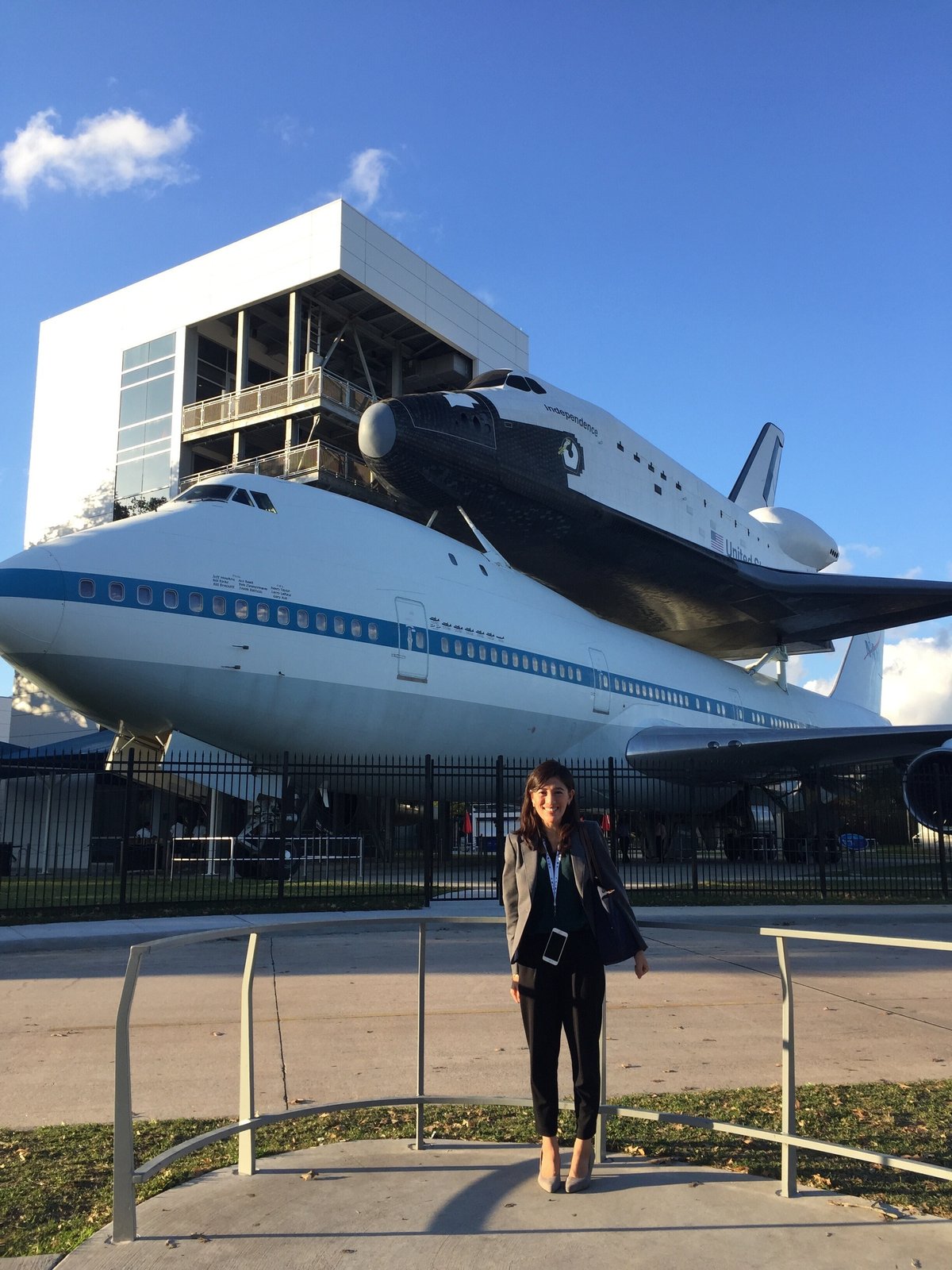
A Message from Ms. Mori to students
The space sector will continue growing. However, it won't grow constantly at the current rate on its own. Therefore, it is very important to bring in other industries.
Space is very cool, but not sustainable on its own. It's critical to keep your eyes open for other ideas and innovations from different industries.
Ms. Mori's Motto
Find wiggling space in everything. Keep yourself optimistic, eventually things will fall into place, so nothing is a disaster. Don't take life too seriously, enjoy it!
Extra information:
How to work in the United Nations
3 main ways of getting into the UN (from Japan)
Via the Junior Professional Officer (JPO) Program: apply through the Japanese Ministry of foreign affairs, to fill a specific position in the UN. If applying for a space-related department, you will need space-related technical/legal background.
Via the Young Professional Program (YPP): Almost like applying to a University. Study super hard and pass an application. You may get shuffled around lots of different positions, and depending on the timing, some positions may be unavailable. Most positions require a Master's or Ph.D. or Certain levels of experience. The hurdle looks very high, but in reality, it's not that hard.
Directly applying for an open position on the UN website
Intern & Volunteer
Others: Ms. Mori was seconded to the UN from JAXA. Many UN organizations have secondments from national bodies or NGOs.
Please check out the Ministry of Foreign affairs website(in Japanese) and the UNHCR website!
Examples of activities coordinated by UNOOSA
(all provide useful info/webinars for students)
Access to Space for all: offer access to space research facilities, infrastructure, and information with the aim of developing technical know-how, engineering processes, and infrastructure in the areas of hypergravity and microgravity, satellite development and space exploration, and promoting international cooperation in the peaceful uses of outer space.
UN Spider: improve action to reduce disaster risk by increasing accessibility to satellite data and tech to utilize it.
Space4Women: Promote women's empowerment in space.
Space4Youth competition: an essay competition, aimed at raising the voice of youth in the space sector.
Space law: providing information and advice on space law.
More information on the UNOOSA website, Space4SDGs, and annual reports!
If you are interested in space…
KiboCube: UN member states can deploy cube satellites from the Kibo module on the ISS.
UNISEC Global: international body to promote space activities amongst students. ("UNISEC" was started in Japan but "UNISEC Global" is an international body.)
Space Generation Advisory Council: the voice of the largest network of students, young professionals, and alumni in the space industry.
International Space University: the sole university worldwide devoted entirely to space education.
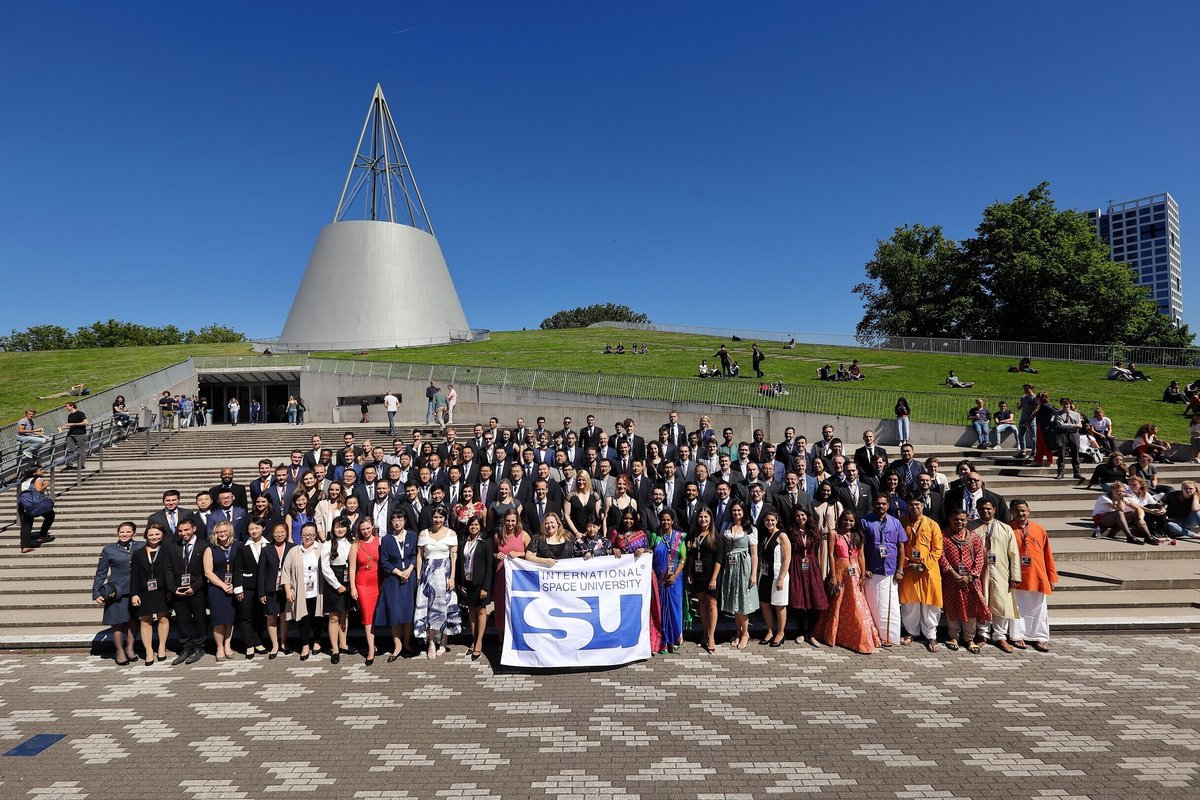
Ms. Mori was also part of the ISU SSP2018!
THANK YOU FOR READING!
ここから先は
¥ 500
この記事が気に入ったらチップで応援してみませんか?
